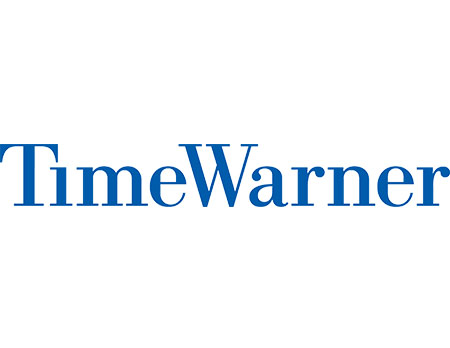Despite Outlook Downgrade,Time Warner’s Got Big Plans

The smarter way to stay on top of broadcasting and cable industry. Sign up below
You are now subscribed
Your newsletter sign-up was successful
Time Warner stock got hammered Wednesday as the company conceded it wouldn’t make its aggressive profit targets during its earnings call with analysts and investors.
In addition to laying out areas where Time Warner expected revenues to fall short, it outlined $100 million investment plan designed to help the company thrive in a changing media landscape.
“We have also identified additional investments and other key decisions that will weigh on earnings in the near term, but that we think will drive long-term growth,” CEO Jeff Bewkes said.
Some investment will be made in brands and programming that will resonate with consumers on new platforms. Bewkes pointed to HBO’s deals with John Stewart, Bill Simmons and Sesame Street as examples. Another example is the video game league Turner is building with WME/IMG.
Bewkes said Time Warner will also spend to improve the consumer experience with video. “Having great content is no longer enough,” he said. “While we are living in the golden age of television programming, for many consumers, the television viewing experience is stuck in the Bronze Age.”
Time Warner also will be beefing up its digital capacity and infrastructure to serve products like HBO Now, CNN’s Great Big Story branded content unit and TBS’s digital studio Super Deluxe.
On demand content is a growing part of what viewers are consuming, and Bewkes said Time Warner is looking to hold onto its rights and delay when it will sell content to streaming video-on-demand operators like Netflix. One possibility is not selling shows to VOD until the traditional syndication window, or three or four years after a show airs. “We'll continue to evaluate and see what window works best for different types of content,” he said.
The smarter way to stay on top of broadcasting and cable industry. Sign up below
“In our efforts to improve the consumer experience on our networks, we're also looking for opportunities to reduce our ad loads,” Bewkes said, pointing to Turner’s plan to increase the amount of programming on its truTV channel.
“We're transforming Turner to focus solely, first and foremost, on the consumer, where the consumer's going and what that experience is going to be,” added John Martin, CEO of Turner Broadcasting. “ When we think about the ad clutter that we have on our networks, I'm comfortable with where we are for the most part, but I think tru is going to be a very, very interesting experiment to see whether it actually will make a difference with respect to the viewing experience. And we don't anticipate it will have really any revenue impact with respect to that network.”
Some of the details of Time Warner’s lowered earning guidance fell to CFO Howard Averill to deliver. Instead of almost $6 in earnings per share in 2016, $5.25 is more likely, the company said. Averill added that the $8 per share goalfor 2018 is also off the table.
Analysts observing industry trends had expected the reassessment, but didn’t know just when it would come.
According to Averill, “ratings at our key domestic entertainment networks have declined to a greater degree than we anticipated a year ago and that will negatively affect ad revenue next year. In addition, since the end of 2014, subscribers at Turner's domestic networks have declined approximately 1% beyond what our outlook had assumed and we're assuming declines continue at a similar rate in 2016.”
On top of that, “we approach the rebrands of TBS and TNT, we're also evaluating the fit of certain programming we currently air. To the extent we decide not to use the programming in the future, that could result in charges during the fourth quarter, though nothing close to the magnitude we saw in 2014,” he said.
In terms of investment, Averill downplayed how much more would be spent on programming. The company had already been pretty aggressive on increasing the money it pours into content. For the fourth quarter, Averill said programming spending would be up 20%.
Analyst Brian Wieser of Pivotal Research noted that Time Warner’s third-quarter earnings were decent, but “entirely overshadowed’” by the reduction in earnings guidance. “Although a reduction in Time Warner’s value is warranted from today’s news, but not as much as the stock’s fall suggests,” Weiser said.
Time Warner stock closed down more than 6% at $72.25 a share. Nearly all the other media stocks fell as well, with AMC Networks, Viacom and 21st Century Fox taking the biggest hits.
Wieser noted that while analysts knew Time Warner would take its numbers down, “they probably didn’t fully expect the company to indicate that it is seeing subscriber erosion not contemplated at the time of last year’s investor day, and nor did they necessarily expect a meaningful increase in programming investment to support revenue growth from television-related businesses.”
Time Warner thinks those investments will pay off. “I'm confident these investments in content, capabilities and the consumer experience will position us for continued strong growth in the years to come,” he said.
Jon has been business editor of Broadcasting+Cable since 2010. He focuses on revenue-generating activities, including advertising and distribution, as well as executive intrigue and merger and acquisition activity. Just about any story is fair game, if a dollar sign can make its way into the article. Before B+C, Jon covered the industry for TVWeek, Cable World, Electronic Media, Advertising Age and The New York Post. A native New Yorker, Jon is hiding in plain sight in the suburbs of Chicago.

